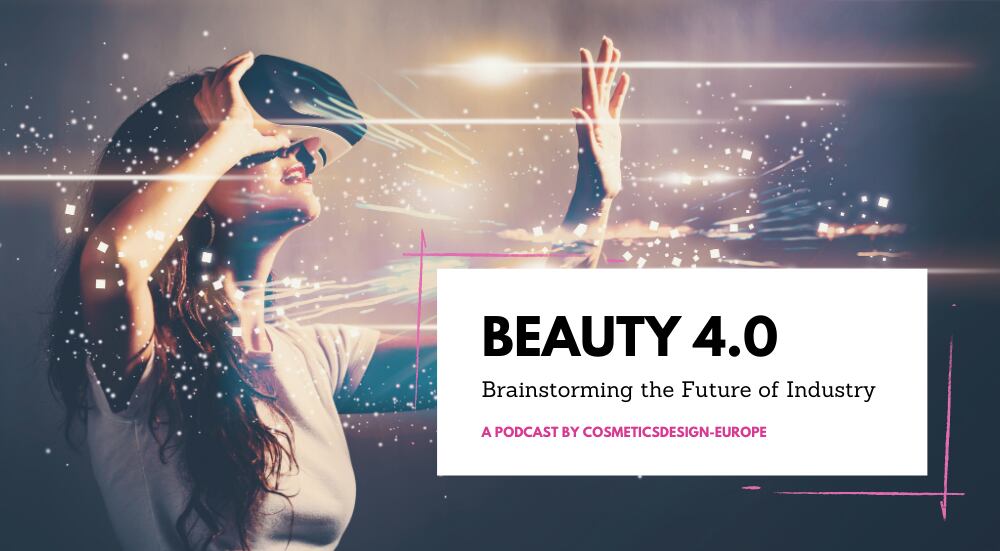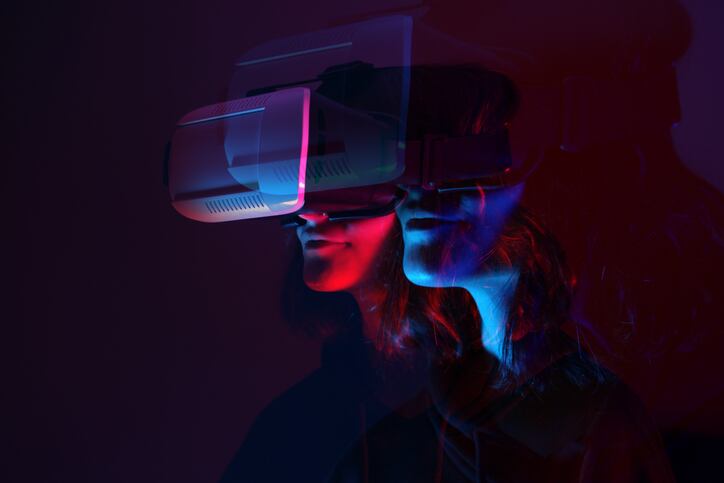Talk about the metaverse – anticipated to become a single, universal and immersive virtual world – had truly taken off this year, capturing the minds of industry and consumers alike with its tantalising aesthetics potential, far-reaching community appeal and tech-forward innovation. But as virtual reality (VR), augmented reality (AR) and a host of tech like virtual try-ons, avatars and non-fungible tokens (NFTs) collided, what exactly did the future of the metaverse look like? And what sort of opportunities did this world hold for beauty?
Speaking at last month’s Cosmoprof Worldwide Bologna event in Italy, a panel of leading beauty experts discussed this, and more, with the senior VP and creative director of insights and trend specialist Beautystreams Michael Nolte, during a Cosmotalks conference session.
‘Metaverse living’, Nolte said, was one of five themes set to rise in importance over the next five years, creating “endless opportunities of expansion” for the beauty sector. Turning to his panellists, he asked for their insight on what the metaverse could bring for beauty.
Understanding consumer engagement will be key
Barbara Doussard, prospective director for L’Oréal Group, said it was a deep question because the metaverse largely remained “a mindset”. And whilst it was proving to be a “very mesmerising” space today, there remained much to learn, particularly around consumer engagement and interest in this world.
“At the beginning, we thought maybe it was an opportunity for Generation Z and Generation Alpha to take over the world and take the power back from the older generation. But the question we have today is: do they really want it?”
Whilst these generations were heavily engaging with the entertainment side of the metaverse, attending the likes of virtual concerts and events, she said it remained uncertain how much they would engage with other facets of the metaverse on a regular basis.
“We don’t know yet. Let’s watch the game,” she said.
Creative space for a 'joyful revolution'
Sarah Léa Chicheportiche, global prospective and global insights at Coty, said that the creative side of the metaverse was the most interesting angle for beauty today, particularly how it enabled and empowered users, particularly consumers, to get creative.
“We can talk about NFTs and crypto but what’s interesting is being creators,” she said. “We can recreate ourselves avatars and that’s interesting and positive in the ideal metaverse.”
This ability to build “infinite identities”, she said, was great because it was a “happy disturbance” and “joyful revolution”.
Sam Cheow, SVP and global head of makeup innovation, portfolio and product development at The Estée Lauder Companies, agreed and said this creative opportunity was also there for industry, though less of a newer concept for brands and manufacturers.
“In the beauty industry, everyone (…) creates. We create the digital persona, makeup look, and mindset we are in. And that’s why a certain shade of lipstick always does really well, because it gives us confidence. We have been living in the metaverse already, it’s just the marketing people that have created the definition for us.”
Building a 'virtual community' without discrimination
What would be “really interesting” to track moving forward, he said, as the metaverse evolved, was how consumers and industry managed “the collision of online and offline” and valued the “sense of synchronicity” between both worlds.
In addition, he said it would be important to carefully consider how beauty could play in the metaverse in a way that created joy but also educated and democratised the category by creating a sense of community.
“If it brings together a virtual community where there is no discrimination, I think that’s something really wonderful about the metaverse,” Cheow said.
Nolte agreed: “There are predictions that the metaverse will exponentially grow, but circling back to the philanthropic way, it’s important to not use it as a way to just get into our consumers’ pockets.”




